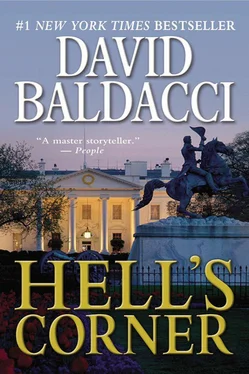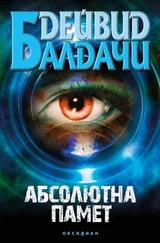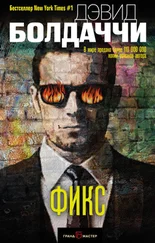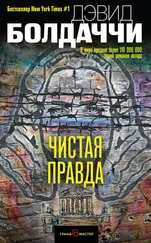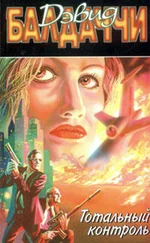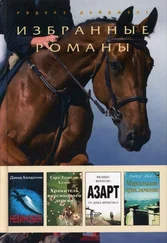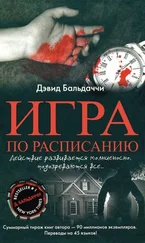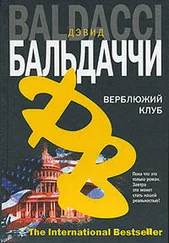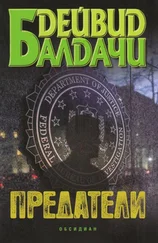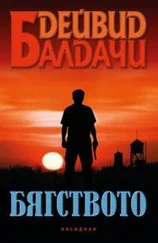Ashburn and Stone exchanged a glance. Stone thought he saw the woman attempt a smile.
“That’s fine,” said Stone. “I look forward to it.”
“Agent Ashburn here told me you were up for the Medal of Honor for your service in Vietnam.”
“I was offered it, yes.”
“But turned it down. Why?”
“I didn’t think I deserved it.”
“But your country did. Isn’t that enough?”
“No sir, it’s actually not.”
“Reuben?”
The large man opened his eyes and stared straight up.
Stone gazed down at him. “Docs say you’ll be leaving soon.”
“Great. I don’t have health insurance. So let me just declare bankruptcy right now. Oh, that’s right. Bankruptcy is for people who actually have property.”
“I can see you’re feeling better already.”
This came from Annabelle, who had been planted in the chair ever since Reuben had been admitted. She rose and stood next to the bed.
Stone said, “Your bill is being taken care of.”
“By who?”
“Uncle Sam.”
“Why? Did he bail out the loading dock where I work too?”
“Just get some rest.”
“Did you find those guys?”
Stone shook his head. “The area had been pretty well sterilized.”
Annabelle said, “So you’re still on the job?”
“For now.”
“What else can we do?”
“I think you’ve both done enough.”
“We didn’t learn very much that was new,” she said.
“No, you actually helped shine a whole new light on everything.”
“Russians?” said Reuben. “Are the bastards really behind this?”
“Looks to be the case.”
“Why?” asked Annabelle. “I thought they were our ally now.”
“Allies come and allies go. And it might not be the Russian government, per se.”
“I called Harry and Caleb. They’re coming over later to see Reuben. Well, Harry said he would if you thought it was okay to take some time off his assignment.”
“I think that would be fine. Please let him know.”
As he turned to leave, Annabelle put an arm around his shoulders and said in a low voice, “Please take care of yourself. We almost lost Reuben.” Her eyes glimmered and Stone touched her cheek.
“I will, Annabelle.”
Chapman was waiting for Stone in the hospital lobby. They walked to her car and drove off.
“Well, the meeting with the FBI really gobsmacked me,” she said.
“The fact that we’re still on the case, or something else?”
“The fact that your director seemed very much out of the loop.”
“And I’m wondering why.”
“What do you think happened to Garchik and that evidence?”
“I don’t know, but I think where we’ll find one we’ll find the other.”
“You think he’s a bad cop?”
Stone didn’t answer right away. “No, I don’t. I think he may have been in the wrong place at the wrong time.”
“Lot of that going around. Look at Alfredo Padilla. And Agent Gross.”
“Right.”
“So the question becomes, if someone is keeping things from the director of the FBI, who could have that kind of clout?”
Stone looked at her. “I need to try and see someone today.”
“Who?”
“Just someone.”
“Is it important?”
“Yes.”
“Where is this person?”
“Well, he lives right across from Lafayette Park.”
It was not an easy thing to get in to see the president of the United States without an appointment. In fact, it was virtually impossible. The man’s work schedule would put anyone else’s in the world to shame. On Air Force One he could cover multiple countries in one day and be home in time for a state dinner and then some late-night phone lobbying with his cohorts on Capitol Hill.
Thus Stone was very surprised to be sitting in a helicopter as it was flown across the Maryland countryside. It touched down in the craw of the Catoctin Mountains where a three-car motorcade took him the rest of the way to Camp David, perhaps the best-protected parcel of land in the world.
This did make sense, thought Stone. Meeting at Camp David was far more private than walking the halls of the White House. As the motorcade entered the confines of Camp David and a ramrod-straight Marine in dress blues met him, Stone wondered exactly how he was going to broach the subject with the man. And what his reaction would be.
Well, I’m just about to find the answers to those questions.
He stood in a small wood-paneled room alone. But not for long. The door opened and there was the president dressed casually in corduroy pants and a checked shirt with loafers on his feet. He held a pair of glasses in one hand and a BlackBerry phone held up to his ear in the other.
He glanced at Stone standing there and motioned for him to take a seat. The president finished his call in low murmurs, slid the phone in his shirt pocket, poured a cup of coffee from a pot set up on a side table and poured one for Stone too. He handed him the cup and sat down, sliding his glasses over his face.
“Lost a contact,” said Brennan. “Backup glasses until they get my other pair. Can’t face the public in glasses. They don’t like that.”
Stone thought about that and it did occur to him that he couldn’t remember seeing a president with glasses on during a public event.
“I appreciate you taking the time to see me on such short notice, sir.”
The president leaned back and scrutinized him. “I’m sure you know why I did. The sense of urgency is compelling. We seem to be spiraling right out of control on this. Every day there’s a new crisis. Made any sense of it yet?”
“Some. But there are a lot of new questions.”
“Give me a quick debrief.”
Stone did so, leaving out nothing, including the attack at his cottage and about Fuat Turkekul.
“I know I’m not telling you anything you aren’t aware of,” he said.
The president nodded. “The PM and I are very close.”
“James McElroy also plays by the rules.”
“An impressive man. Always seems to know more than anyone else, myself and his prime minister included, I think.”
“The mark of a good intelligence officer,” commented Stone. “But keeping me in the dark on that did cost us time.”
“I’m aware of that, but it couldn’t be helped,” he said brusquely.
“I understand.”
“Some good has come out of this,” said Brennan.
“Sir?” asked Stone with a questioning look.
In response the president picked up a remote and hit a button. A part of the wall slid open, revealing a flat-screen TV. The president touched another button and the TV came on. “This was recorded earlier,” he explained.
Stone watched as the image of Carmen Escalante appeared. She looked even smaller and her leg braces even bigger on the screen than in person. She was being interviewed about the death of her beloved uncle and her own personal plight with her medical issues.
“Word has really spread about this, causing two things to happen. We’re holding a joint memorial service for Mr. Padilla and Agent Gross. The president of Mexico is flying up for the ceremony. And, second, private donors have stepped in to pay for Ms. Escalante’s operations for her legs.”
“That’s very nice.”
“As you probably know, relations with Mexico have been strained due to the immigration issue among other things. However, things have thawed a bit with what happened to Padilla. I know he’s an accidental hero, but he still lost his life. And we need heroes wherever we can find them. The story has gotten favorable play in Mexico and here. The people of our two nations have come together a little bit more. It’s positive, or so my aides tell me. Something to build on for the future. That’s one of the major reasons we’re holding the joint memorial service.”
Читать дальше
